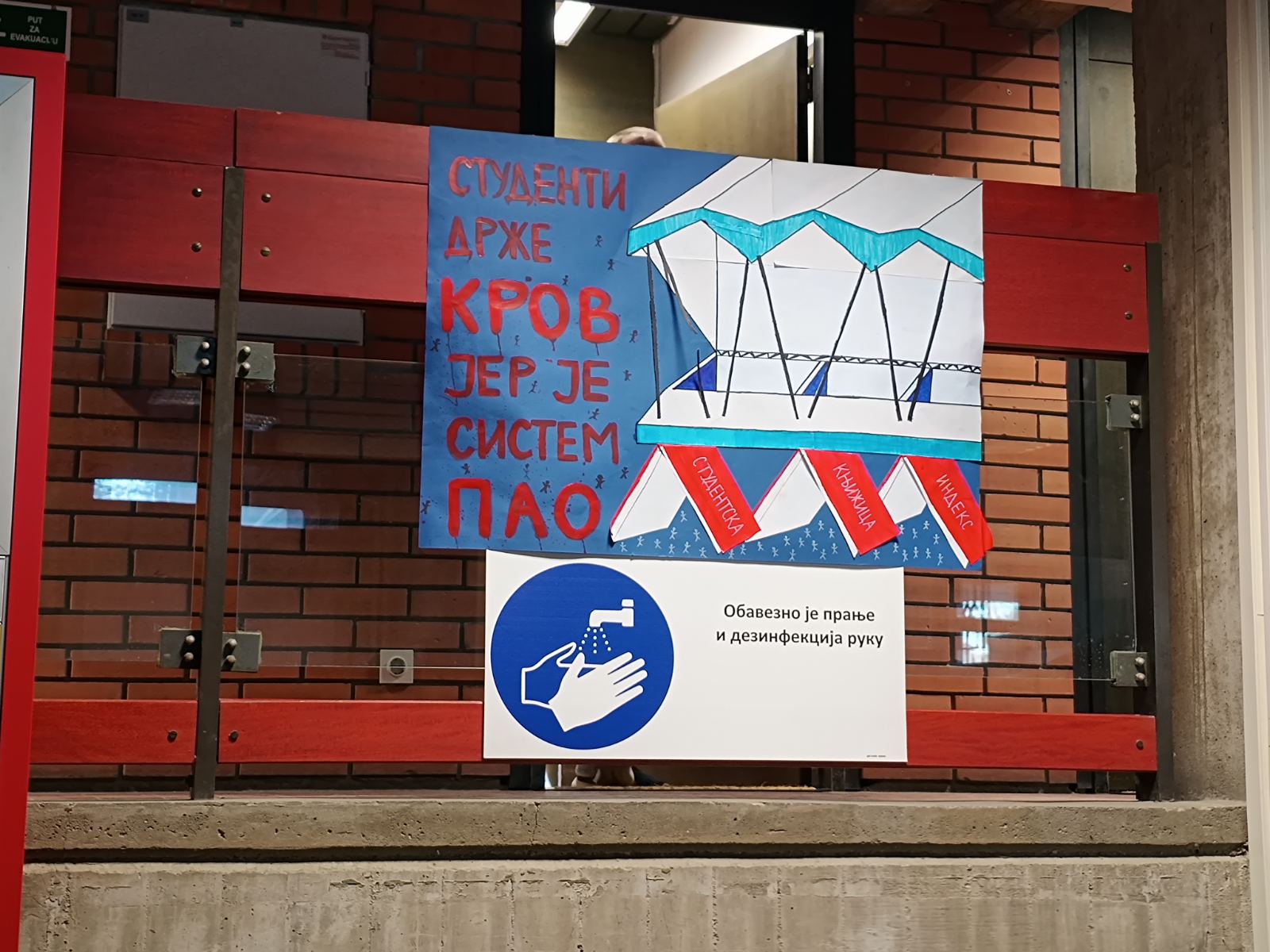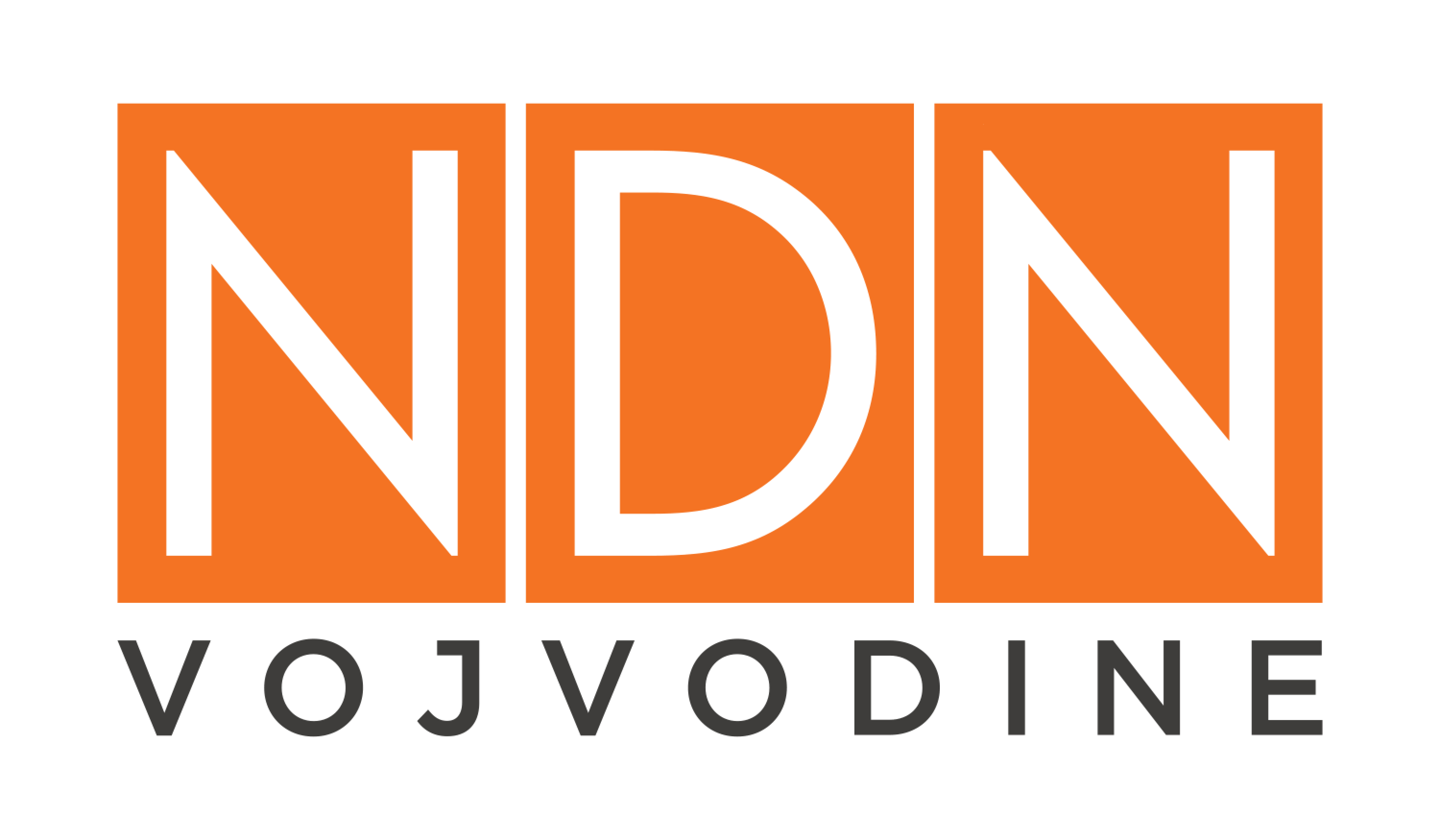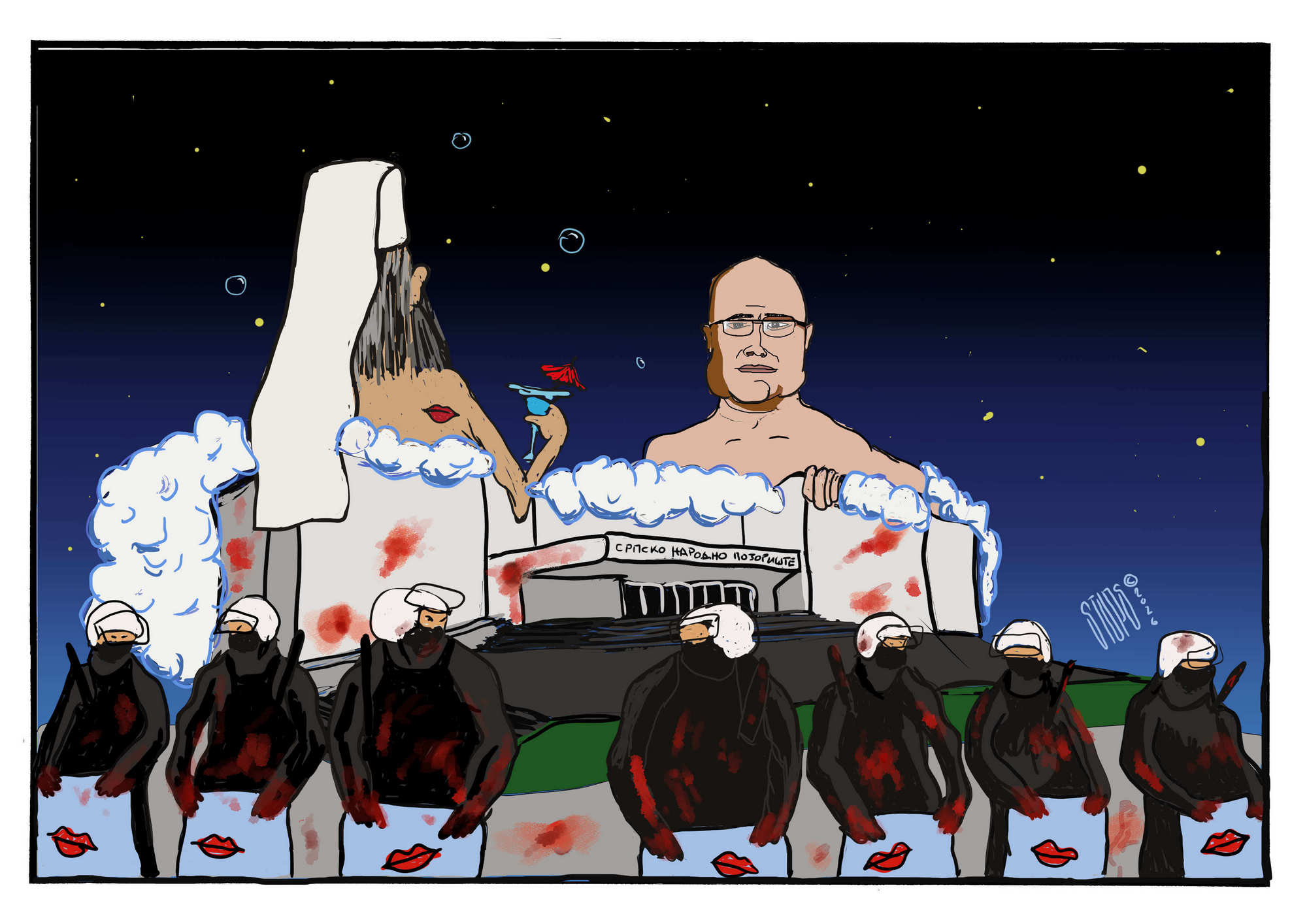"Attacks on journalists and lack of justice, SLAPP, Russian propaganda"

At least four media crews have recently been attacked while reporting on antigovernment protests in Serbia. At earlier meetings in Belgrade, Reporters Without Borders (RSF) asked the information minister and president’s media advisor for measures against the impunity of crimes committed against journalists, abusive lawsuits targeting them and against the Kremlin’s disinformation.
The attacks on Serbian media covering the anti-government protests after the deadly accident at the Novi Sad railway station have once again highlighted the dangers faced by those reporting in public interest. On 5 November, violent individuals broke the camera of Serbia’s independent channel, N1, and knocked down the cameraman of Euronews, while reporters of the local radio, 021, were attacked with paint and plastic bottles. After a protest in Belgrade on the same night against the removal of a bridge, an extreme right politician assaulted and threatened with death the cameraman of the news agency FoNet.
These incidents add to the long history of unchecked violence, including the unresolved 1999 killing of Slavko Curuvija. As shown by the defamation lawsuits filed by the former defendants against the Slavko Curuvija Foundation for its exasperation over their February 2024 acquittal, the lack of justice exacerbates the risks for media professionals.
In Serbia, ranked 98th out of 180 countries – second to the last in the European Union (EU) and Balkans zone – in RSF’s 2024 World Press Freedom Index, the citizens’ access to trustworthy information is further undermined by Russian propaganda and abusive lawsuits (SLAPPs) targeting the media. RSF discussed the issues during its mission to Belgrade from 31 October to 4 November with representatives of journalists, international community and the government – Minister of Information, Dejan Ristic, and media advisor to the Serbian president, Suzana Vasiljevic.
“Right to propaganda replacing the right to information. Perpetrators of attacks against journalists presented as victims. Freedom of the medias’ enemies instead of media freedom. Serbia is the informational weak link of Europe. At my meetings with the authorities in Belgrade, I urged them to take measures against Russian propaganda, abusive lawsuits and the impunity of crimes committed against journalists. Speaking to the international community in Serbia, I pleaded for their support for such action.
Pavol Szalai, Head of the EU-Balkans Desk at RSF
As highlighted by RSF at the Brave New Media Forum organised by the Deutsche Welle Akademie on 2 November, the International Day to End Impunity for Crimes against Journalists, urgent action of the Serbian authorities is needed in the following three areas:
Attacks on journalists and lack of justice. In addition to the emblematic case of Slavko Curuvija and other journalists’ killings, justice has not been served in more recent cases such as death threats to the Novi Sad-based journalists Ana Lalic and Dinko Gruhonjic in March 2024. The person suspected of the threats – which followed the repeated defamatory remarks by the leader of the parliamentary majority – fled Serbia while being under arrest. During its Belgrade mission, RSF expressed concerns about the political attacks on journalists and asked the government to create conditions for the justice system to swiftly hold responsible the authors of crimes against journalists.
Abusive lawsuits (SLAPPs). Targeted by 16 ongoing lawsuits, the investigative online outlet KRIK is the Serbian independent media with the highest number of SLAPPs, according to its own analysis. Several of the legal actions aimed at silencing national media – as well as local outlets with less resources for their defence in court – have been initiated by individuals or entities with government ties. At its meetings with Dejan Ristic and Suzana Vasiljevic, RSF called on them to work on anti-SLAPP legislative and non-legislative measures based on the recent recommendations of the Council of Europe and European Commission.
Russian propaganda. The reactions of the ruling majority and the pro-government media to RSF’s September 2024 investigation of the Kremlin’s propaganda factory in Belgrade, RT Balkan, showed what the Russian outlets and their Serbian media and political amplifiers know best: spreading disinformation. RSF was falsely accused of being an “intelligence branch” and “a tool of the West”. Government officials were spreading fake news about RSF having approved the 1999 deadly airstrike on the public broadcaster RTS and launched a narrative about Serbia as an “island of freedom”. Even the Serbian President Aleksandar Vucic commented on RSF’s investigation by saying that “all our lives we were taught that there must be another side, that you have to hear everything, and today everything is so partisan, if you listen to both sides, you are an enemy of both sides”. While in Belgrade, RSF asked the authorities to enforce the Serbian law – which RT Balkan is violating by lack of transparency – if it refuses to apply the EU sanctions on Russia’s propaganda outlets.
Reacting to RSF’s investigation in early October, the European Commission reminded Serbia that “as a candidate country for EU membership, [it] must […] take urgent measures to combat the manipulation and interference of foreign information“. In its annual report on Serbia published on 30 October, the European Commission called on Serbia to take action for the safety of journalists and against SLAPPs. The country made “no progress” on freedom of expression in the previous year, according to the report.









 STUPS: Paralelni univerzumi
STUPS: Paralelni univerzumi